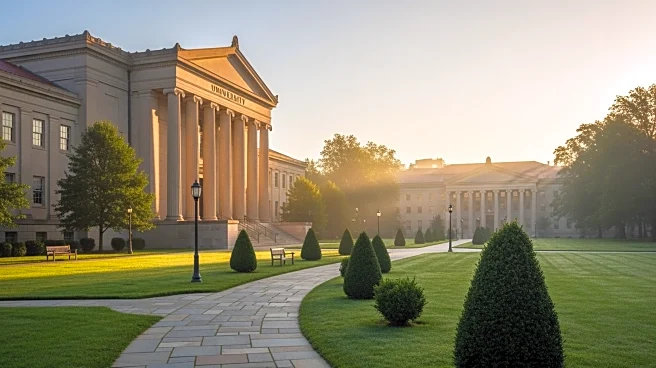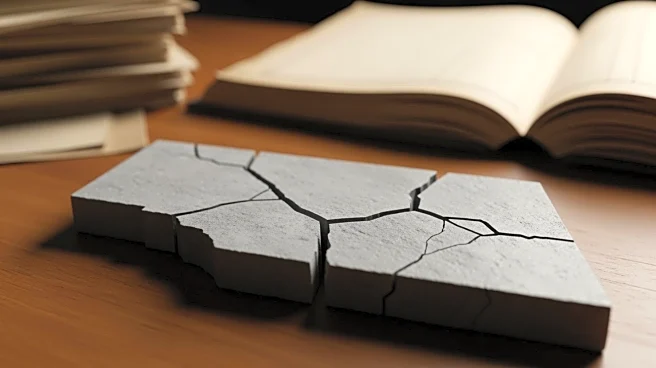What's Happening?
UCLA is contemplating a move from the historic Rose Bowl to the modern SoFi Stadium, a decision that has sparked debate among fans and stakeholders. The university is reportedly willing to pay millions
in legal fees to break its lease with the Rose Bowl, which it had previously committed to honor. The move is seen as a strategic effort to leverage SoFi Stadium's state-of-the-art facilities as a recruiting tool, given its proximity to the UCLA campus. However, this decision has been met with resistance from longtime fans who cherish the tradition and atmosphere of the Rose Bowl. Critics argue that the Rose Bowl's charm and history are integral to the college football experience, despite logistical challenges such as parking and travel distance.
Why It's Important?
The potential relocation of UCLA's football games to SoFi Stadium could have significant implications for the university's athletic program and its financial strategy. By moving to a more modern venue, UCLA aims to enhance its appeal to recruits and improve its football program's competitiveness. This decision could also impact the financial dynamics between UCLA and the city of Pasadena, as breaking the lease would involve substantial financial penalties. Additionally, the move could affect the Rose Bowl's revenue and its status as a historic sports venue. The decision reflects broader trends in college sports where institutions seek to balance tradition with modern amenities to attract talent and fans.
What's Next?
If UCLA proceeds with the move, it will need to navigate legal challenges and negotiate financial settlements with Pasadena. The university may also face backlash from fans and alumni who value the Rose Bowl's legacy. UCLA will likely invest in enhancing its football program and facilities to justify the move and ensure long-term success. The decision could prompt other universities to reconsider their venue choices, especially those with aging facilities. Stakeholders will be watching closely to see how UCLA manages the transition and whether it can maintain fan support while pursuing modernization.
Beyond the Headlines
The debate over UCLA's potential move highlights the tension between preserving tradition and embracing modernity in college sports. It raises questions about the value of historic venues versus the benefits of cutting-edge facilities. The decision could influence how other universities approach similar dilemmas, potentially leading to a shift in how college sports are marketed and experienced. Additionally, the move could have cultural implications, as it challenges the notion of what constitutes an authentic college football experience.










